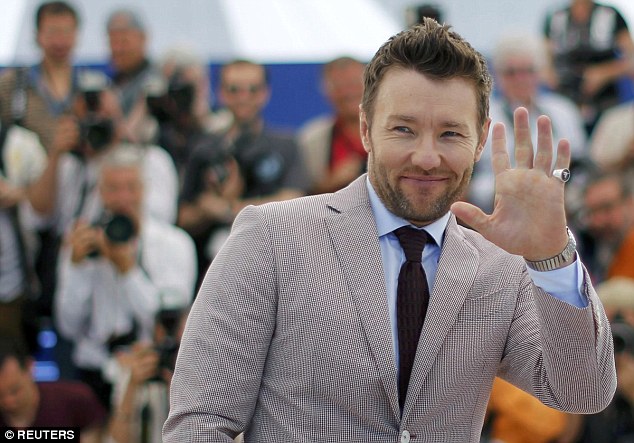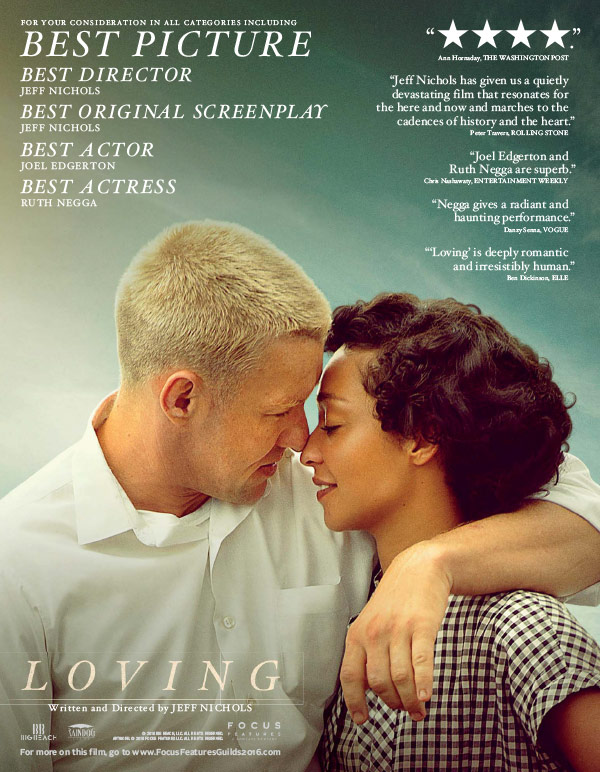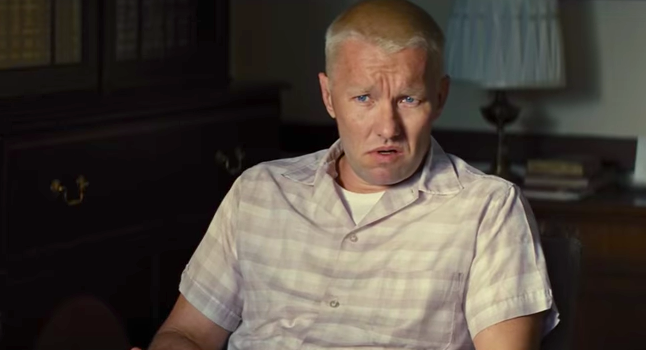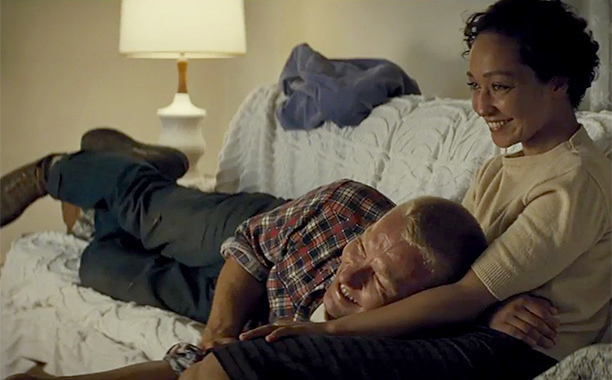by Lynn Lee

As we approach the start of Oscar voting, the race for Best Actor remains comparatively quiet, especially when compared with the super-tight margins in the Best Actress category. Currently the smart money has the Academy tracking the SAG lineup, with Casey Affleck and Denzel Washington as virtual locks (notwithstanding the continued rumbling about those 2010 sexual harassment suits against Affleck) and Ryan Gosling, Viggo Mortensen, and Andrew Garfield filling the remaining slots...
 Of course, SAG doesn’t always predict Oscar, and some prognosticators are betting that Tom Hanks will squeeze in for Sully; some are even giving Michael Keaton an outside shot despite the fact that few have seen The Founder. But if there’s a strong dark horse in the field, isn't it Joel Edgerton for his performance in Jeff Nichols’ Loving?
Of course, SAG doesn’t always predict Oscar, and some prognosticators are betting that Tom Hanks will squeeze in for Sully; some are even giving Michael Keaton an outside shot despite the fact that few have seen The Founder. But if there’s a strong dark horse in the field, isn't it Joel Edgerton for his performance in Jeff Nichols’ Loving?
Why him? Ruth Negga has been getting a lot of attention for her work in Loving, and deservedly so. But Edgerton’s performance is a key counterpoint to hers that shouldn’t be underestimated. Interestingly, even though the film’s a two-hander, his role frequently feels like it’s supporting hers, in large part because Mildred is the one who goes from passive victim to the driving force behind the couple’s quest for justice. Edgerton’s Richard Loving is a man of little words and even less affect, who after their scarring experience with the Virginia criminal justice system is clearly skeptical that seeking legal redress will do their family any good. As far as Richard’s concerned, he just wants the law to leave them alone. Yet he loves his wife, knows that their forced exile isn’t right, and ultimately, if begrudgingly, acquiesces to the lawsuit even as it subjects them to unwanted attention. Edgerton somehow conveys these unspoken tensions convincingly with barely perceptible changes in expression, in contrast to Negga’s extraordinarily eloquent eyes and body language.

Three scenes in particular capture the effectiveness of this approach. First, there’s the Lovings’ first meeting with their very green ACLU lawyer (Nick Kroll): the juxtaposition of Mildred’s brightly expectant face and Richard’s closed expression and narrowed eyes, suspiciously sizing up the attorney and concluding “you get what you pay for,” is both telling and funny. Later, a photographer for Time-Life (Michael Shannon) spends an evening in the Loving household and manages to get a number of candid family shots, including the iconic image of Richard lying on the sofa with his head in Mildred’s lap. For just a fleeting moment, we see the man with his guard down, happy and affectionate. And finally, when asked what he would want to say to the Supreme Court, Richard responds: “Tell the judge I love my wife.” That’s the Oscar-reel line right there, yet he says it so simply, without any dramatic inflection, that it doesn’t feel like a line at all; it feels like the plain statement of truth it is. It also underscores a theme – love is love – that Hollywood may be even more in a mood to reward in defiance of the shifting political climate.
Edgerton’s performance hasn’t gone unnoticed, nabbing Critics Choice and Golden Globe nominations. Also working in his favor is the steady body of work he’s amassed over the last several years, including solid performances in Midnight Special, Black Mass, The Great Gatsby, Warrior, Animal Kingdom, and writing and directing The Gift. (We’ll draw a curtain over his unfortunate flirtation with brownface in Exodus: Gods and Kings, since, let’s face it, everything about that project was unfortunate for all concerned.) And his role in Loving, to the extent that it has no sinister dimensions, no hidden darkness, is a bit of playing against type for him – even if the character’s stoicism is not.

Why not him? The lack of capital-A Acting and the character’s reserve may not resonate with Oscar. As a lead role, it doesn’t reach out and grab you. The fact that it’s not supposed to doesn’t help its chances; what some see as restrained others may see as inert. The problem’s compounded by how understated Loving is as a whole, as reflected in the complete lack of SAG lovin’ (sorry) for the film.
Who would he displace? Probably Garfield, whose performance may arguably be the least broadly loved of the five SAG nominees. In the end, it may well come down to the simple question of whether Academy voters respond more strongly to Hacksaw Ridge or to Loving.
How do you rate Edgerton’s Oscar chances and would he make your ballot?